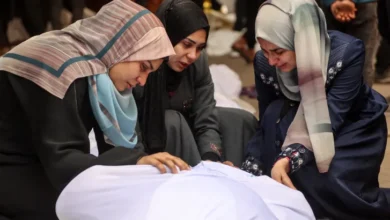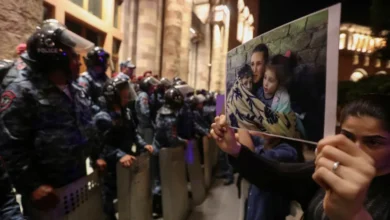‘Going backward’: How demonising migrants remains fertile ground in US

Farah Larrieux watched this week’s presidential debate between former United States President Donald Trump and Vice President Kamala Harris, first from her home in the suburbs of Miami and then online as she headed to a late-night job.
Within minutes of the event starting, Trump had trumpeted a sensational — and false — claim about Haitian immigrants stealing and eating pets in the town of Springfield, Ohio.
Larrieux, herself a Haitian immigrant in the US on a precarious temporary status
For Larrieux, who advocates for the Haitian community in the US, Trump’s amplification of the outlandish lies about Haitian immigrants during the debate — watched by more than 67 million viewers across the country — pointed to something deeper.
“Using migrants and Haitians as weapons for the political agenda, it’s not just frustrating,” she said. “It shows that we don’t have progress in the United States. The United States is going backward.”
, found the amplification of the debunked tale both shocking and reprehensible.
But she was also struck by another fact: “It wasn’t even what the question was about,” Larrieux told Al Jazeera.
Trump’s false rhetoric underscored a clear campaign strategy from the Republican presidential candidate: He has been trying to hammer Harris on an issue that the Democrat is perceived to be vulnerable on.
It also highlighted how anti-immigrant talking points have been used for political purposes, experts said, while also fuelling dangerous consequences for the communities being targeted.










